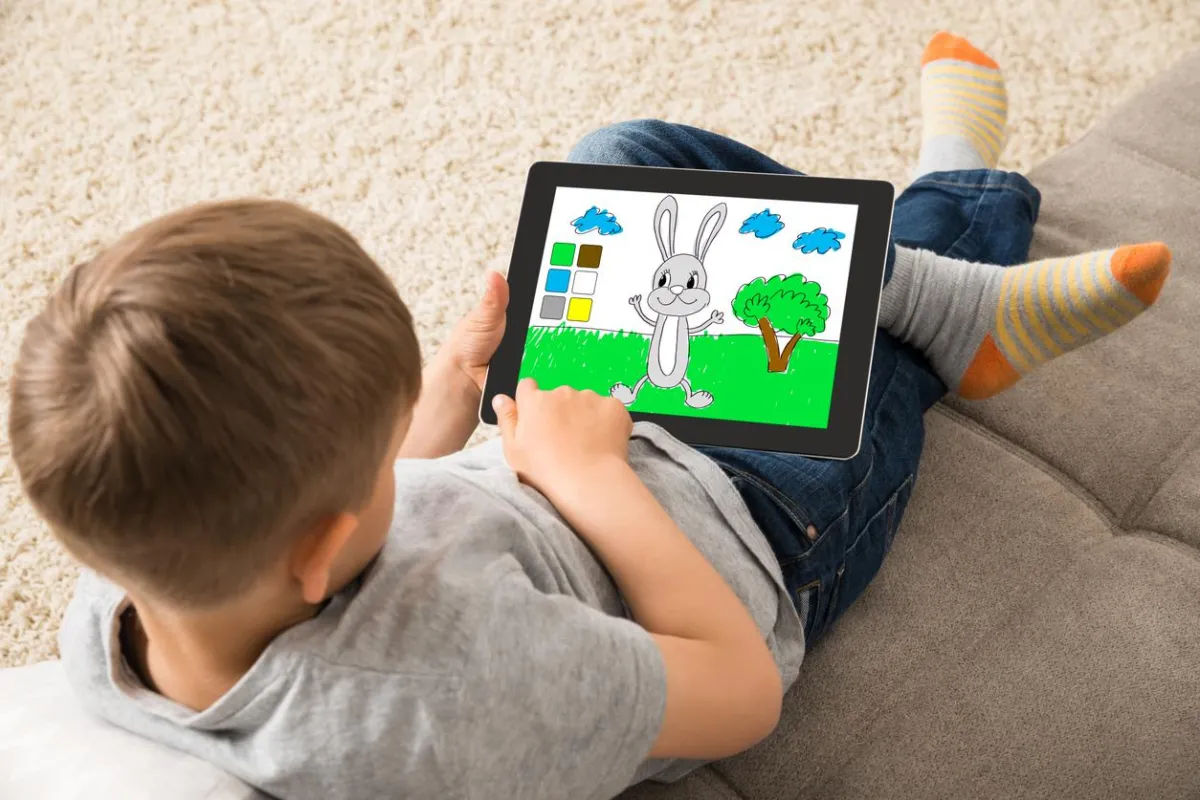
Teaching Kids in an Age of Screens
I had stepped into a two-year-old classroom to let a teacher use the bathroom. Usually when I do that, I start singing songs and doing finger plays with the kids to help keep them engaged while their teacher is gone. I started singing "Wheels on the Bus" but the kids started pointing to the tablet - they wanted me to play the song from YouTube instead of singing it. This threw me off, as I had never had that happen before. Usually when I break out into song and motions, the kids happily join in.
We have entered into an age where more kids are entertained by screens than any time previous. Kids television shows promise educational material and tablet apps teach all sorts of academic skills. Behind it all are parents who are stressed and exhausted, thankful for the break that the screens provide. I'm not knocking any of it. I had my youngest in front of Baby Einstein when she was a baby, and when I went through a particularly dark period of my life my oldest watched "The Rescuers" on repeat. I've been there.
But when I put on my early childhood educator hat, I have to consider what effects so much screen time is having on the development of the children in our care. Behavior patterns that were almost unheard of ten years ago are now the norm, from lack of attention span to outright defiant behaviors. Where circle time used to look like kids sitting calmly, reciting their colors, shapes, numbers, and letters, now it looks like a frustrated teacher constantly telling a group of children to sit down and keep their hands to themselves because - well, they just can't.
The thing is, television and screens provide us with feedback that real life doesn't necessarily provide. Television shows for kids are formatted to provide constant stimulation and gratification. Once children move away from the screens, they look for that stimulation in the environment around them, but nothing in the real world provides that same kind of stimulation. I believe that is why the behaviors we see in kids today are so busy. They are looking for that same stimulation that they get from a screen, but the only way they can get it is to be as busy as a screen is.
But along with that busy-ness comes a lack of impulse control. Children don't need impulse control when they are watching a screen. The screen pretty much provides instant gratification through its constant sensory output. There is always something there to entertain, and nine times out of ten if you don't like what it is putting out, you can touch something on the screen to change it to something you do like. Kids don't have to wait for a certain time of the day to watch what they want to. They don't have to wait for that sensory input that they crave. That makes it hard for them to wait when it comes to activities that require that skill.
Then there is the developmental lag that comes from so much screen time. Screen time doesn't require children to use their motor skills, and it doesn't require hands-on play with any materials. I've been in so many classrooms lately where children don't seem to know what to do with the materials that are on the shelves. It is almost like teachers have to teach them how to play because they don't seem to have those skills either.
Then there is problem-solving, another skill that suffers from the increase in screen time. Most problems that are presented on a screen are solved by the characters in the story, and problems tend to work themselves out in a positive way for everyone involved. That doesn't happen in real life, so when children are faced with a situation that doesn't go their way, they don't know how to handle it.
I feel like the introduction of so much screen time in children's lives is going to cause a dramatic rethinking of the routines we are so used to in early childhood settings. If children aren't able to sit for circle time, we are going to have to adapt how circle time works so that children can have a successful learning experience. If children are not learning how to handle big emotions beyond the early childhood classroom, then we have to put methods into place to teach them how to do that. And we will have to intentionally model for children how to use the materials in the classroom instead of expecting them to already know what to do. Our job is to help children be successful, and in order to do that we have to be mindful of the skills they are bringing into the classroom. Once we have a good idea of their knowledge and skill level, then we can work together add to that however we need to. Luckily, we strive to provide teachers with the tools that they can use to help children be successful, so I hope that you take advantage of what we have to offer.
